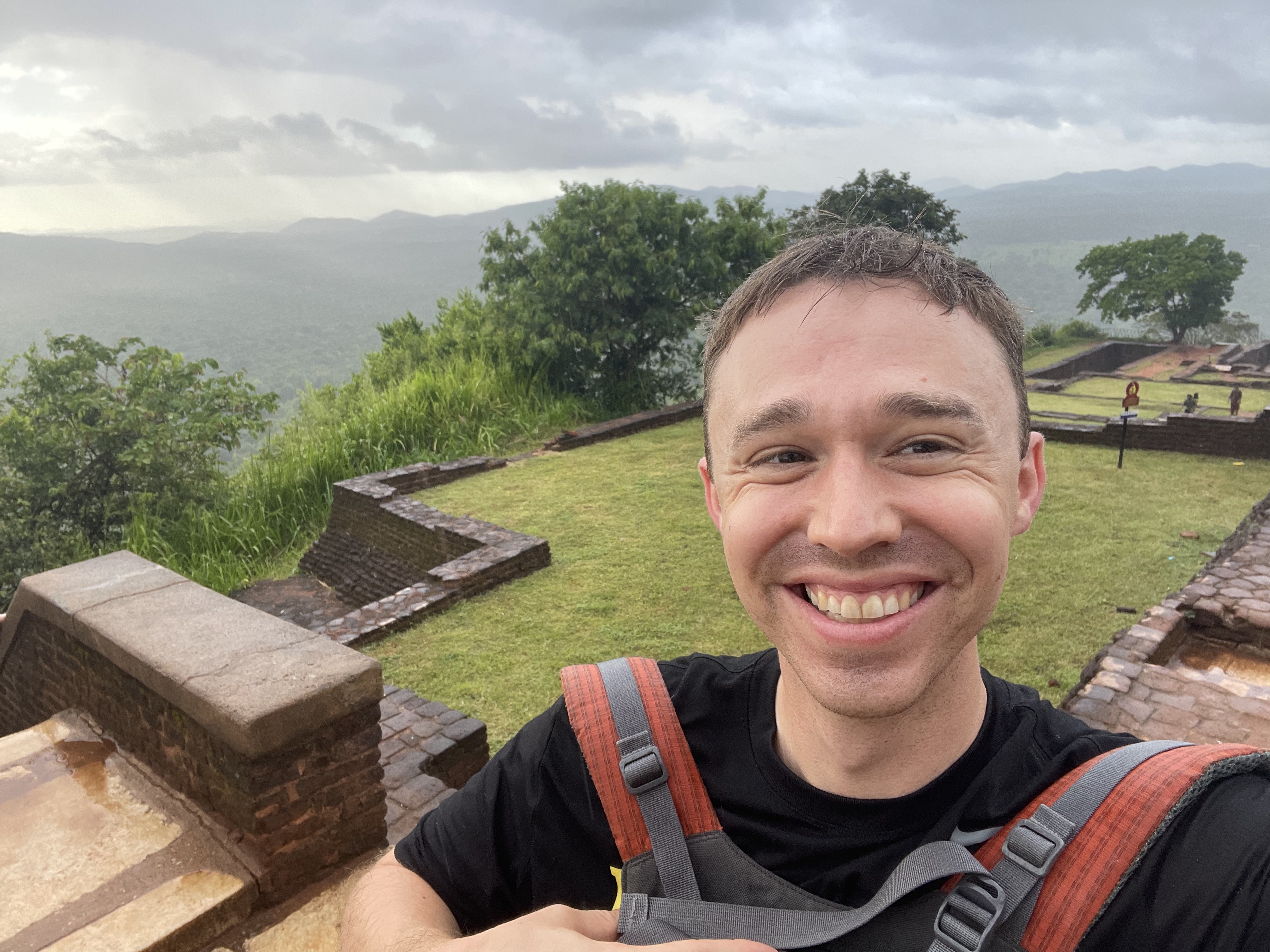Below you'll find a collection of Kenaston's past blog posts. You can also use the navigation bar to learn more about Kenaston, his research, and his pedagogy.
10 Dec 2025
This fall I was nominated in the Rising Star category for the 2026 State Council of Higher Education for Virginia’s Outstanding Faculty Awards! As part of the nomination process, I had to solicit letters from supervisors, colleagues, students, and community leaders. Several letter-writers graciously shared their letters with me. What a treat! Regardless of whether I’m selected or not, I appreciate having a stash of letters I can turn to next time I’m feeling blue.
A few months earlier, the image below appeared on the college’s homepage. I was hoping my 15 minutes of fame would be a little cooler, but you take what you can get, I guess!
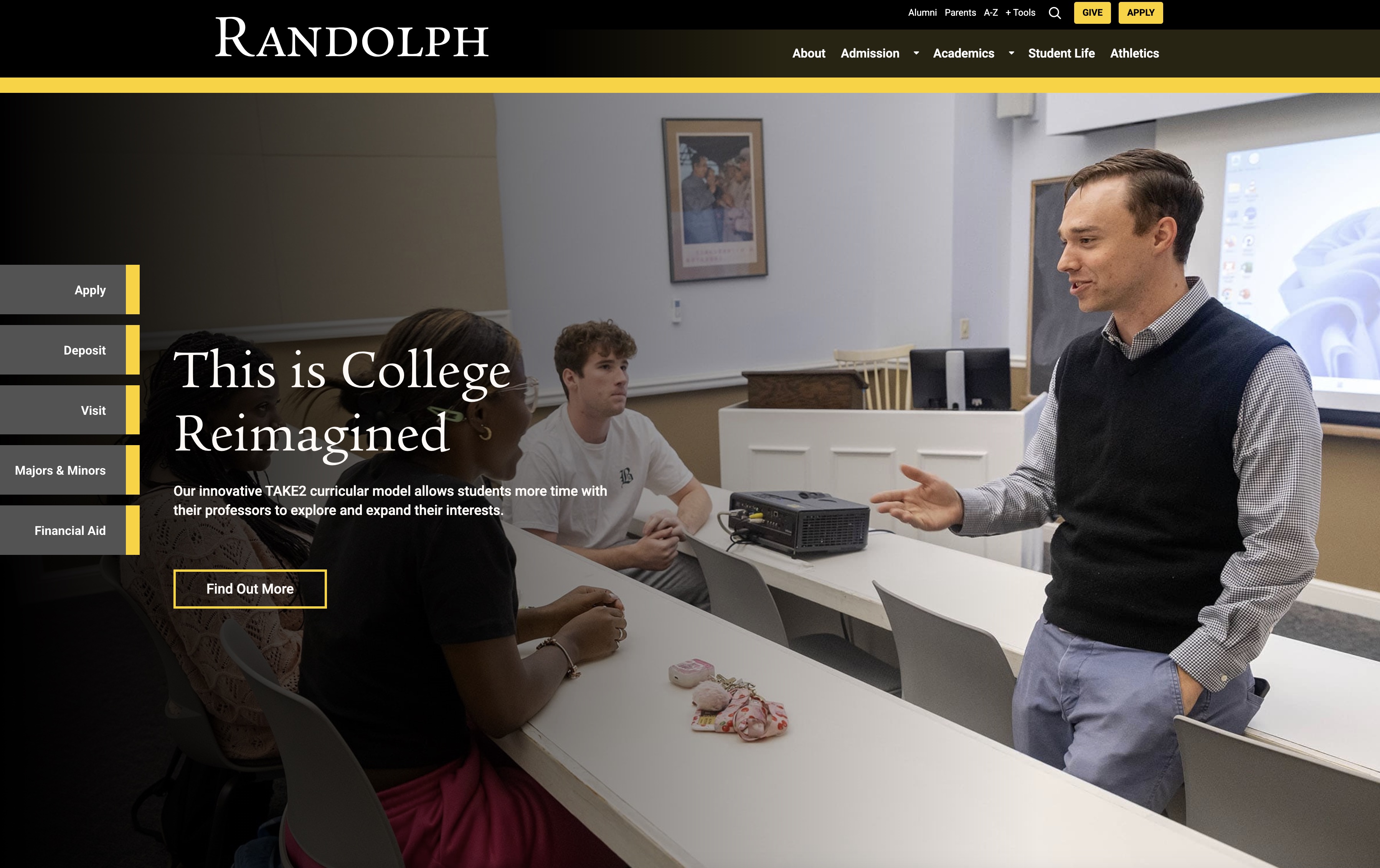
15 Nov 2025
This past spring, Admissions asked me to give a “sample class” for an Admitted Student Day. I decided to create a version of historian Cate Denial’s “What Do Historians Do?” exercise. It’s a fun activity for the first day of class because students think it is just a fun game but later realize the activity helped them think critically about narrative, evidence, and the archive. I thought it’d work well in this setting because it’s engaging and students don’t need to know anything about the topic prior to the exercise. The exercise makes clear to students that if they come to Randolph, they won’t just be memorizing – they’ll learn to become critical thinkers.
To set up the exercise, I decided to talk a little about the Revolution and how historians have told it in different ways at different times. Ms. Llewellyn, my fifth grade teacher, would be proud to know that I opened my talk with the first two stanzas of Henry Wadsworth Longfellow’s “Paul Revere’s Ride” – all from memory! After making fun of myself for clearly going to school in the 1900s, I have them do a little math to calculate that this is the 250th anniversary of “the eighteenth of April in (seventeen) seventy-five”.
I give them a heads up that they’re going to hear a lot about the American Revolution over the course of the next year. But I insist that telling the story isn’t just a matter of regurgitating facts. We have to tell the story; and in doing so, we’re making choices (whether we realize it or not) about what stories to include and how to frame them. How you tell the story of the Revolution shapes the contemporary lessons people draw from it. Is the Revolution about the evil of taxation… or about the necessity of overthrowing autocratic rulers? Well, it depends on how you tell the story. How we tell the nation’s origin story shapes how we think about our country in this moment.
I then pivot back to Longfellow’s poem. Like most people, I learned the poem in the Revolutionary War unit of my elementary history class. But that wasn’t when it was written. As I have since learned, the poem was published on the eve of the Civil War as Southerners had begun to secede from the union in order to preserve the institution of slavery. Longfellow was an ardent abolitionist. In other words, I’ve come to realize that the famous poem wasn’t just about Paul Revere. It was a powerful call to arms for the Union:
A cry of defiance and not of fear…
In the hour of darkness and peril and need,
The people will waken and listen to hear
The hurrying hoof-beats of that steed,
And the midnight message of Paul Revere.
The story of the Revolution isn’t just about the past; it has ramifications for us in this moment. I tell the students that unlike Henry Wadsworth Longfellow (who played fast and loose with some facts), historians use evidence to tell us what happened… cue transition to analyzing a set of Revolutionary-era political cartoons and coming up with the narrative they elicit!
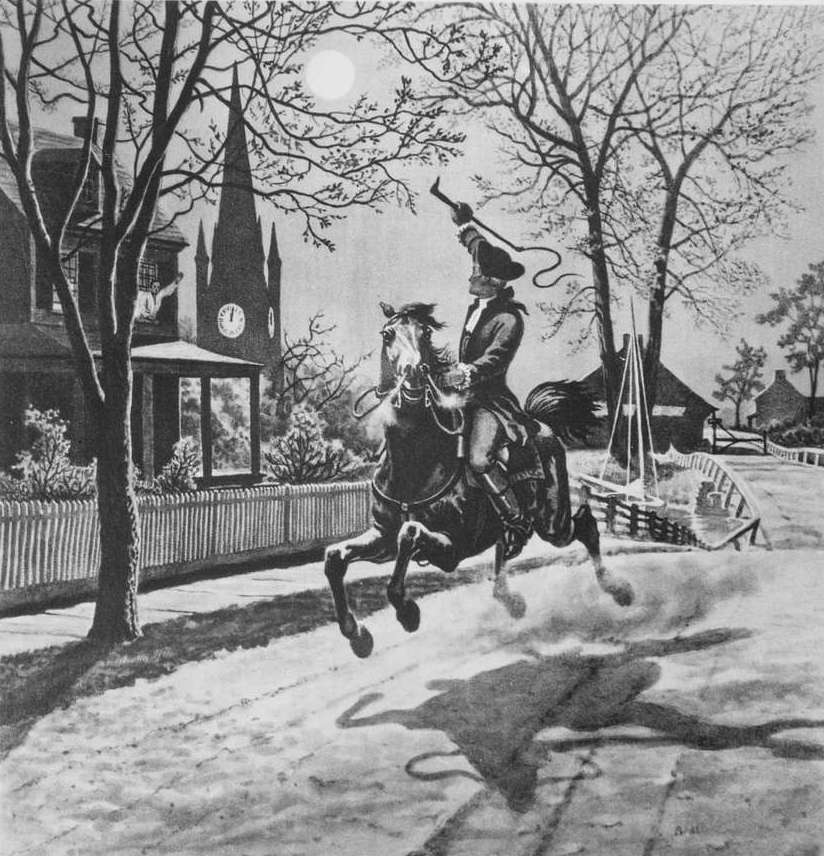
12 Oct 2025
A few months ago, I was asked to preach at First Christian Church in Lynchburg, Virginia. My text was Jeremiah 2. Weaving tales of my grandmother, the Kingdom of Judah, and Lynchburg’s most famous civil rights sit-in, I argued for the importance of telling our love stories, even in hard times. You can listen to a recording of my sermon on YouTube.
The civil rights portion of my talk grew out of my earlier work preparing a co-lecture for Randolph’s first year experience program, Life More Abundant.
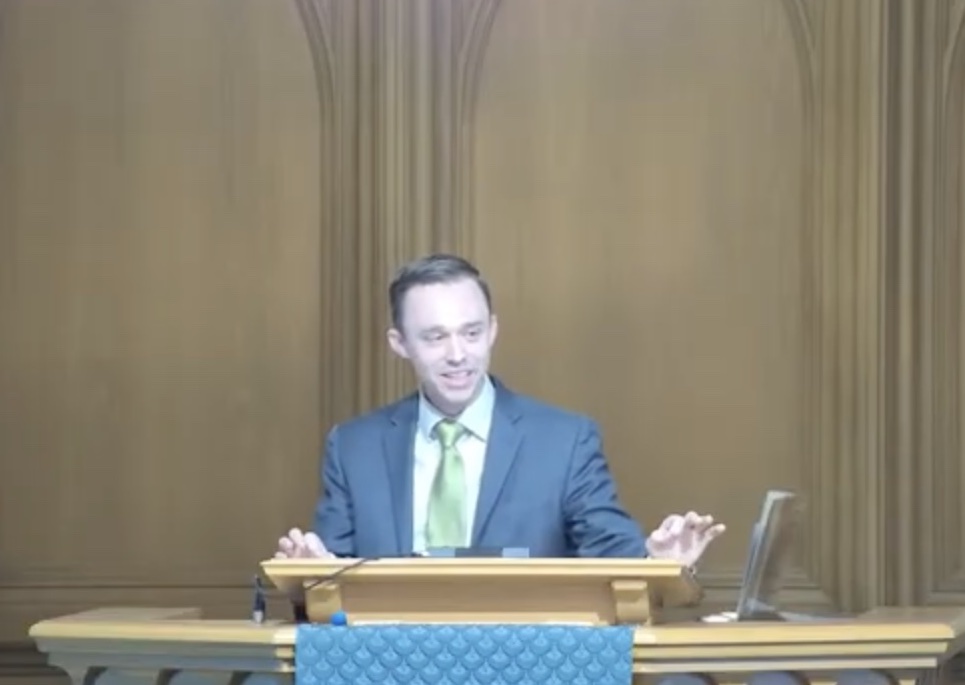
10 Oct 2025
I first heard about Randolph-Macon Woman’s College through a book I read in grad school, Journeys that Opened Up the World by historian Sara Evans. The book is a series of memoirs by sixteen women who were involved in the Student Christian Movement who later became activists in the civil rights movement, anti-war campaign, and the feminist movement. I found the book personally meaningful because several activists had been part of the United Methodist Church’s young adult service program – the same program that I joined after college (and where I met my spouse). One of the memoirs was written by Rebecca Owen, one of the leaders of the civil rights movement in Lynchburg and a student at Randolph-Macon Woman’s College. I paid special attention to Becky’s memoir in particular because she, like me, had grown up Methodist, became a leader in the denomination, and saw her activism as an outgrowth of her faith.
When I first applied for a job at Randolph, I decided to do my teaching demonstration on the sit-in movement. Though I didn’t talk about Becky Owen or the other members of the Patterson Six, I did reference their story at the end of my demonstration – in part to help make my point that the Civil Rights Movement was a grassroots movement.
After arriving at Randolph, I have continued to be fascinated by Becky’s story, assigning her memoir in my American Women’s History course and searching out any other material I can find on her.
This summer, I finally had the opportunity to sort through some of that research and put together a talk before Randolph’s first-year class (the largest in the college’s 130+ year history). The lecture was a co-lecture with my esteemed colleague, Dr. Amy Cohen of Classics and Theatre, where we wove Becky’s story with that of Antigone, the Greek play for this year.
The lecture went off really well. Though collaboratively creating anything can be more difficult, it can also be more fun – and I think our final product was both creative and compelling.
One story that I discovered while doing the research is that Becky attended a Student Christian Movement conference in the fall of 1960, right before the start of her senior year. She met Black activists who had pioneered the sit-in movement such as Rev. James Lawson, the young minister who taught John Lewis and others how to get in “good trouble.” “The imperative of the Denver conference was unambiguous,” Becky recalled in her memoir. “If you, Becky Owen, are serious about Christianity and injustice, get the hell back to Lynchburg and do something.” Upon returning to R-MWC, Becky reached out to Rev. Virgil Wood, pastor of Diamond Hill Baptist, and with the help of the YWCA they began organizing discussion groups that brought together college students and Black community leaders. A couple months later, six college students who’d been involved in the discussion groups headed to Patterson’s Drug Store in downtown Lynchburg…
If you want to hear the rest of the story, I gave a version of this talk the following Sunday at First Christian Church.

29 Sep 2025
This fall I taught Queer American History. Every student in the class wanted to be there, wanted to do the readings, wanted to talk about what they were learning – it created a pretty magical learning environment!
One of the high points was a guest lecture by Dr. Samantha Rosenthal. With the help of the History Department and the Intercultural Center, I invited Dr. Samantha Rosenthal to join us on campus to talk about her book, Living Queer History: Remembrance and Belonging in a Southern City, published by UNC Press in 2021. The talk was wonderful – several students wrote in their senior capstones that they found it inspirational. Follow her substack if you’re not already!
One of the greatest treats as a teacher is when students decide they want to do their senior capstone on something pertaining to what they learned in your class. This year, two of the seniors in my class told me they’re now planning to write on queer history! One is even using the oral histories and digitized archive created by the Southwest Virginia LGBTQ+ History Project that Dr. Rosenthal helped lead.
Huge thanks to Dr. Rosenthal and to Kathleen, David, and Gail who helped make this course so special!
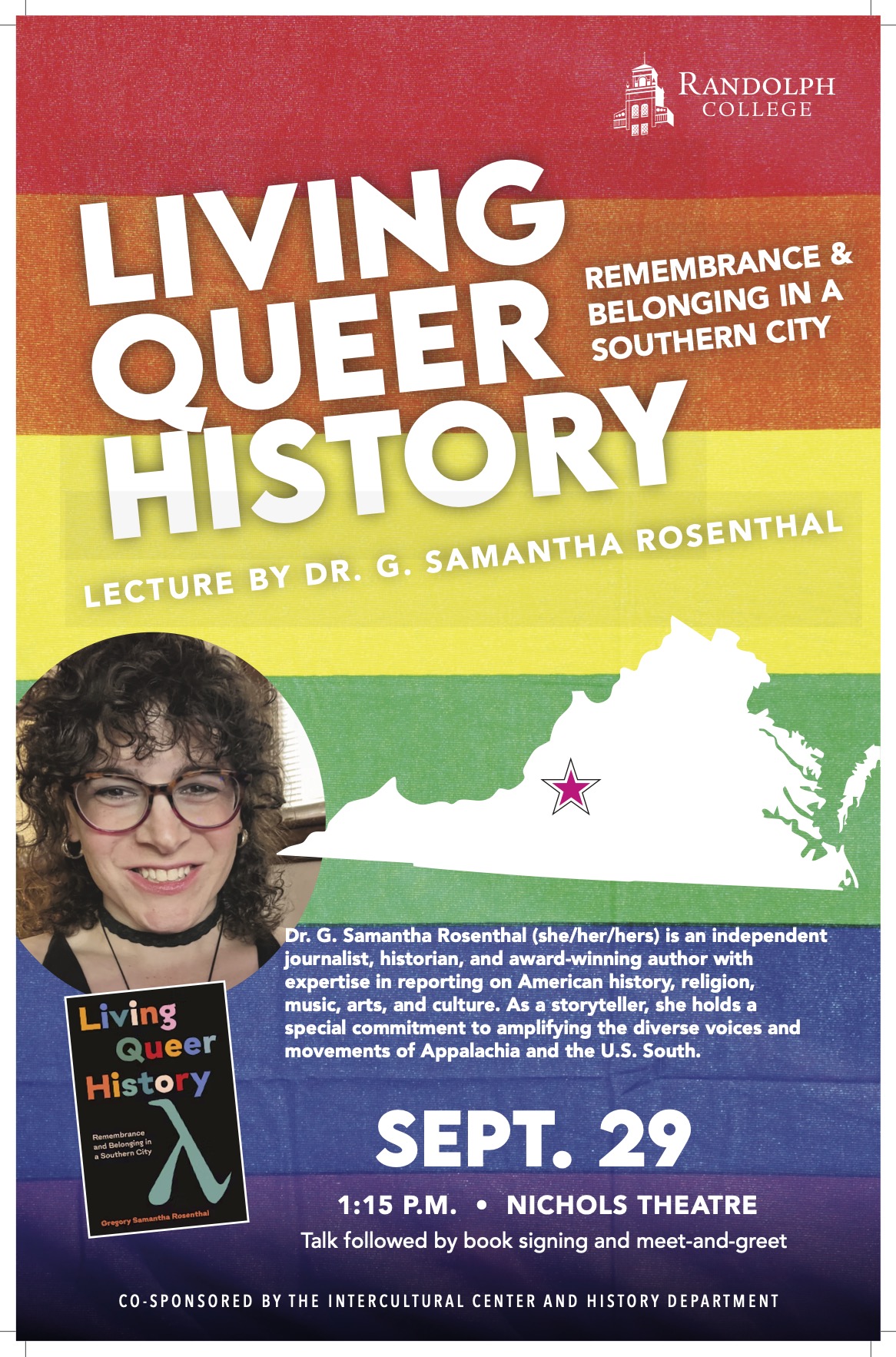
18 Jul 2025
This past year, I received support from the Ruth Borker Fund for Women’s Studies to develop a new course on Queer History at Randolph College. Named in honor of a former Randolph professor, the Borker Fund supports faculty efforts to integrate “gender-related perspectives into the curriculum.”
When I first arrived at Randolph, I didn’t anticipate teaching Queer History. But over the past three years, I’ve become convinced that such a course is essential. While I wasn’t formally trained in queer theory or LGBTQ history, I am a social historian committed to centering the experiences of underrepresented groups. In that spirit, I’ve worked to incorporate LGBTQIA+ stories into all of my classes. The student response has been powerful. Many have described this as a “secret” history—one that resonates deeply with their lives and experiences. The need for this course has only grown more urgent amid the current wave of erasure of LGBTQ+ history.
With support from the Borker Fund, I traveled to San Francisco this summer to visit key historical sites. The first day, I visited the Tenderloin neighborhood to check out the Tenderloin Museum, the former site of Compton’s Cafeteria, and Glide Memorial Church. I also traveled to Golden Gate Park to walk through the National AIDS Memorial Grove. I spent the next day in the Castro. I visited the GLBT Historical Society Museum — the first stand-alone LGBTQ history museum in the US - and joined an LGBTQ+ history walking tour. As part of the tour, I visited the Castro Camera, Harvey Milk Plaza, Pink Triangle Memorial, Castro Theatre, and the Rainbow Honor Walk. On my final day, I ferried over to Angel Island State Park, where I was reminded of Margot Canaday’s work on how the federal government policed sexual identity through immigration policy.
The trip helped me think more intentionally about how to frame particular units and introduced new sources and stories - such as the Compton’s Cafeteria Riot - that I plan to incorporate into the syllabus. I’m really looking forward to teaching the course this fall!

15 Jun 2025
As I mentioned in my last post, this summer I had the tremendous opportunity to travel to Sri Lanka as part of the Quillian International Scholar Study Abroad Seminar. We spent nearly two weeks there, and it was an unforgettable journey.
Some highlights for me included:
